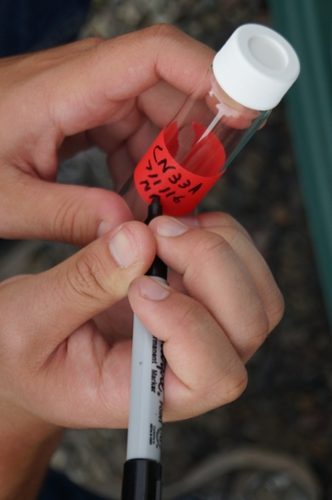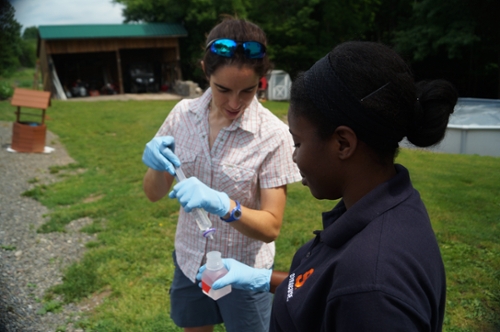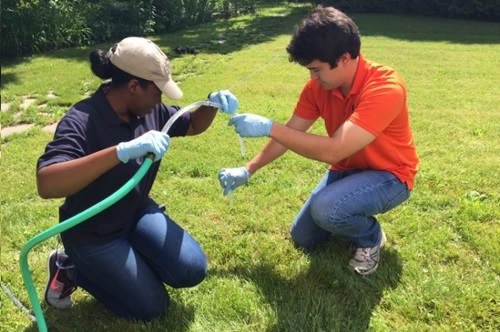Project SWIFT:
Shale-Water Interaction Forensic Tools
Developing sensitive tests for detecting contamination associated with shale bed methane production in the Appalachian Basin
Maintaining access to abundant clean water, while also meeting our increasing demand for cleaner energy is a major societal challenge. The largest natural gas play in the United States, the Marcellus Shale, is tapped using a technique called hydraulic fracturing, or hydrofracking. In contrast to the recent shale gas boom in Pennsylvania, New York State is now under a hydrofracking ban. There is an unprecedented opportunity to complete a thorough, large-scale, unbiased assessment of water quality pre-hydrofracking, to facilitate detection of water quality impairment post-hydrofracking.
Project SWIFT is a large-scale water quality program that disseminates water quality testing information to participating land owners, while also involving them in the development of a publically-available water quality database and a geochemical fingerprinting tool specifically developed for identifying potential water quality impairment due to hydraulic fracturing. We are involving local residents of communities underlain by the Marcellus Shale in a large-scale, unbiased sampling of the region’s surface and groundwater quality.
This material is based upon work supported by the National Science Foundation under Grant No. EAR-1313522. Any opinions, findings, and conclusions or recommendations expressed in this material are those of the author(s) and do not necessarily reflect the views of the National Science Foundation.

A centerpiece of the project is the development of a geospatially-referenced database.

A special thank you to the over 200 participating homeowners between 2012 and 2016! If you have any questions, please don’t hesitate to contact our project team at swift@syr.edu or 315.443.6271.

Lautz et al. 2014. Using discriminant analysis to determine sources of salinity in shallow groundwater prior to hydraulic fracturing. Environ Sci & Technol, 48(16):9061–9069.
Christian et al. 2016. Methane occurrence is associated with sodium-rich valley waters in domestic wells overlying the Marcellus Shale in New York State. Water Resour Res, 52(1):206-226.
Lu et al. 2015. Iodine as a sensitive tracer for detecting influence of organic-rich shale in shallow groundwater. Appl Geochem, 60: 29-36.
